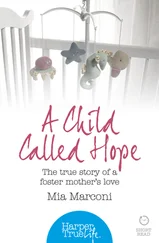Ганс Андерсен - The True Story of My Life - A Sketch
Здесь есть возможность читать онлайн «Ганс Андерсен - The True Story of My Life - A Sketch» — ознакомительный отрывок электронной книги совершенно бесплатно, а после прочтения отрывка купить полную версию. В некоторых случаях можно слушать аудио, скачать через торрент в формате fb2 и присутствует краткое содержание. Жанр: Биографии и Мемуары, literature_19, Европейская старинная литература, foreign_antique, на английском языке. Описание произведения, (предисловие) а так же отзывы посетителей доступны на портале библиотеки ЛибКат.
- Название:The True Story of My Life: A Sketch
- Автор:
- Жанр:
- Год:неизвестен
- ISBN:нет данных
- Рейтинг книги:3 / 5. Голосов: 1
-
Избранное:Добавить в избранное
- Отзывы:
-
Ваша оценка:
- 60
- 1
- 2
- 3
- 4
- 5
The True Story of My Life: A Sketch: краткое содержание, описание и аннотация
Предлагаем к чтению аннотацию, описание, краткое содержание или предисловие (зависит от того, что написал сам автор книги «The True Story of My Life: A Sketch»). Если вы не нашли необходимую информацию о книге — напишите в комментариях, мы постараемся отыскать её.
The True Story of My Life: A Sketch — читать онлайн ознакомительный отрывок
Ниже представлен текст книги, разбитый по страницам. Система сохранения места последней прочитанной страницы, позволяет с удобством читать онлайн бесплатно книгу «The True Story of My Life: A Sketch», без необходимости каждый раз заново искать на чём Вы остановились. Поставьте закладку, и сможете в любой момент перейти на страницу, на которой закончили чтение.
Интервал:
Закладка:
"I prophesy," said Baggesen, "that one day something will come out of him; but do not be vain when, some day, the whole public shall applaud thee!" and then he added something about pure, true nature, and that this is too often destroyed by years and by intercourse with mankind. I did not understand it all.
Siboni promised to cultivate my voice, and that I therefore should succeed as singer at the Theatre Royal. It made me very happy; I laughed and wept; and as the housekeeper led me out and saw the excitement under which I labored, she stroked my cheeks, and said that on the following day I should go to Professor Weyse, who meant to do something for me, and upon whom I could depend.
I went to Weyse, who himself had risen from poverty; he had deeply felt and fully comprehended my unhappy situation, and had raised by a subscription seventy rix dollars banco for me. I then wrote my first letter to my mother, a letter full of rejoicing, for the good fortune of the whole world seemed poured upon me. My mother in her joy showed my letter to all her friends; many heard of it with astonishment; others laughed at it, for what was to be the end of it? In order to understand Siboni it was necessary for me to learn something of German. A woman of Copenhagen, with whom I travelled from Odense to this city, and who gladly, according to her means, would have supported me, obtained, through one of her acquaintance, a language-master, who gratuitously gave me some German lessons, and thus I learned a few phrases in that language. Siboni received me into his house, and gave me food and instruction; but half a year afterwards my voice broke, or was injured, in consequence of my being compelled to wear bad shoes through the winter, and having besides no warm under-clothing. There was no longer any prospect that I should become a fine singer. Siboni told me that candidly, and counselled me to go to Odense, and there learn a trade.
I, who in the rich colors of fancy had described to my mother the happiness which I actually felt, must now return home and become an object of derision! Agonized with this thought, I stood as if crushed to the earth. Yet, precisely amid this apparently great un-happiness lay the stepping-stones of a better fortune.
As I found myself again abandoned, and was pondering by myself upon what was best for me next to do, it occurred to me that the Poet Guldberg, a brother of the Colonel of that name in Odense, who had shown me so much kindness, lived in Copenhagen. He lived at that time near the new church-yard outside the city, of which he has so beautifully sung in his poems. I wrote to him, and related to him everything; afterwards I went to him myself, and found him surrounded with books and tobacco pipes. The strong, warm-hearted man received me kindly; and as he saw by my letter how incorrectly I wrote, he promised to give me instruction in the Danish tongue; he examined me a little in German, and thought that it would be well if he could improve me in this respect also. More than this, he made me a present of the profits of a little work which he had just then published; it became known, and I believe they exceeded one hundred rix dollars banco; the excellent Weyse and others also supported me.
It was too expensive for me to lodge at a public house; I was therefore obliged to seek for private lodgings. My ignorance of the world led me to a widow who lived in one of the most disreputable streets of Copenhagen; she was inclined to receive me into her house, and I never suspected what kind of world it was which moved around me. She was a stern, but active dame; she described to me the other people of the city in such horrible colors as made me suppose that I was in the only safe haven there. I was to pay twenty rix dollars monthly for one room, which was nothing but an empty store-room, without window and light, but I had permission to sit in her parlor. I was to make trial of it at first for two days, meantime on the following day she told me that I could decide to stay or immediately go. I, who so easily attach myself to people, already liked her, and felt myself at home with her; but more than sixteen dollars per month Weyse had told me I must not pay, and this was the sum which I had received from him and Guldberg, so that no surplus remained to me for my other expenses. This troubled me very much; when she was gone out of the room, I seated myself on the sofa, and contemplated the portrait of her deceased husband.
I was so wholly a child, that as the tears rolled down my own cheeks, I wetted the eyes of the portrait with my tears, in order that the dead man might feel how troubled I was, and influence the heart of his wife. She must have seen that nothing more was to be drained out of me, for when she returned to the room she said that she would receive me into her house for the sixteen rix dollars. I thanked God and the dead man. I found myself in the midst of the mysteries of Copenhagen, but I did not understand how to interpret them. There was in the house in which I lived a friendly young lady, who lived alone, and often wept; every evening her old father came and paid her a visit. I opened the door to him frequently; he wore a plain sort of coat, had his throat very much tied up, and his hat pulled over his eyes. He always drank his tea with her, and nobody dared to be present, because he was not fond of company: she never seemed very glad at his coming. [Footnote: This character will be recognised in Steffen Margaret, in Only a Fiddler.—M. H.] Many years afterwards, when I had reached another step on the ladder of life, when the refined world of fashionable life was opened before me, I saw one evening, in the midst of a brilliantly lighted hall, a polite old gentleman covered with orders—that was the old father in the shabby coat, he whom I had let in. He had little idea that I had opened the door to him when he played his part as guest, but I, on my side, then had also no thought but for my own comedy-playing; that is to say, I was at that time so much of a child that I played with my puppet-theatre and made my dolls' clothes; and in order that I might obtain gaily-colored fragments for this purpose, I used to go to the shops and ask for patterns of various kinds of stuffs and ribbons. I myself did not possess a single farthing; my landlady received all the money each month in advance; only now and then, when I did any errands for her, she gave me something, and that went in the purchase of paper or for old play-books. I was now very happy, and was doubly so because Professor Guldberg had induced Lindgron, the first comic actor at the theatre, to give me instruction. He gave me several parts in Holberg to learn, such as Hendrik, and the Silly Boy, for which I had shown some talent. My desire, however, was to play the Correggio. I obtained permission to learn this piece in my own way, although Lindgron asked, with comic gravity, whether I expected to resemble the great painter? I, however, repeated to him the soliloquy in the picture gallery with so much feeling, that the old man clapped me on the shoulder and said, "Feeling you have; but you must not be an actor, though God knows what else. Speak to Guldberg about your learning Latin: that always opens the way for a student."
I a student! That was a thought which had never come before into my head. The theatre lay nearer to me, and was dearer too; but Latin I had also always wished to learn. But before I spoke on the subject to Guldberg, I mentioned it to the lady who gave me gratuitous instruction in German; but she told me that Latin was the most expensive language in the world, and that it was not possible to gain free instruction in it. Guldberg, however, managed it so that one of his friends, out of kindness, gave me two lessons a week.
The dancer, Dahlen, whose wife at that time was one of the first artistes on the Danish boards, opened his house to me. I passed many an evening there, and the gentle, warm-hearted lady was kind to me. The husband took me with him to the dancing-school, and that was to me one step nearer to the theatre. There stood I for whole mornings, with a long staff, and stretched my legs; but notwithstanding all my good-will, it was Dahlen's opinion that I should never get beyond a figurante. One advantage, however, I had gained; I might in an evening make my appearance behind the scenes of the theatre; nay, even sit upon the farthest bench in the box of the figurantes. It seemed to me as if I had got my foot just within the theatre, although I had never yet been upon the stage itself.
Читать дальшеИнтервал:
Закладка:
Похожие книги на «The True Story of My Life: A Sketch»
Представляем Вашему вниманию похожие книги на «The True Story of My Life: A Sketch» списком для выбора. Мы отобрали схожую по названию и смыслу литературу в надежде предоставить читателям больше вариантов отыскать новые, интересные, ещё непрочитанные произведения.
Обсуждение, отзывы о книге «The True Story of My Life: A Sketch» и просто собственные мнения читателей. Оставьте ваши комментарии, напишите, что Вы думаете о произведении, его смысле или главных героях. Укажите что конкретно понравилось, а что нет, и почему Вы так считаете.












